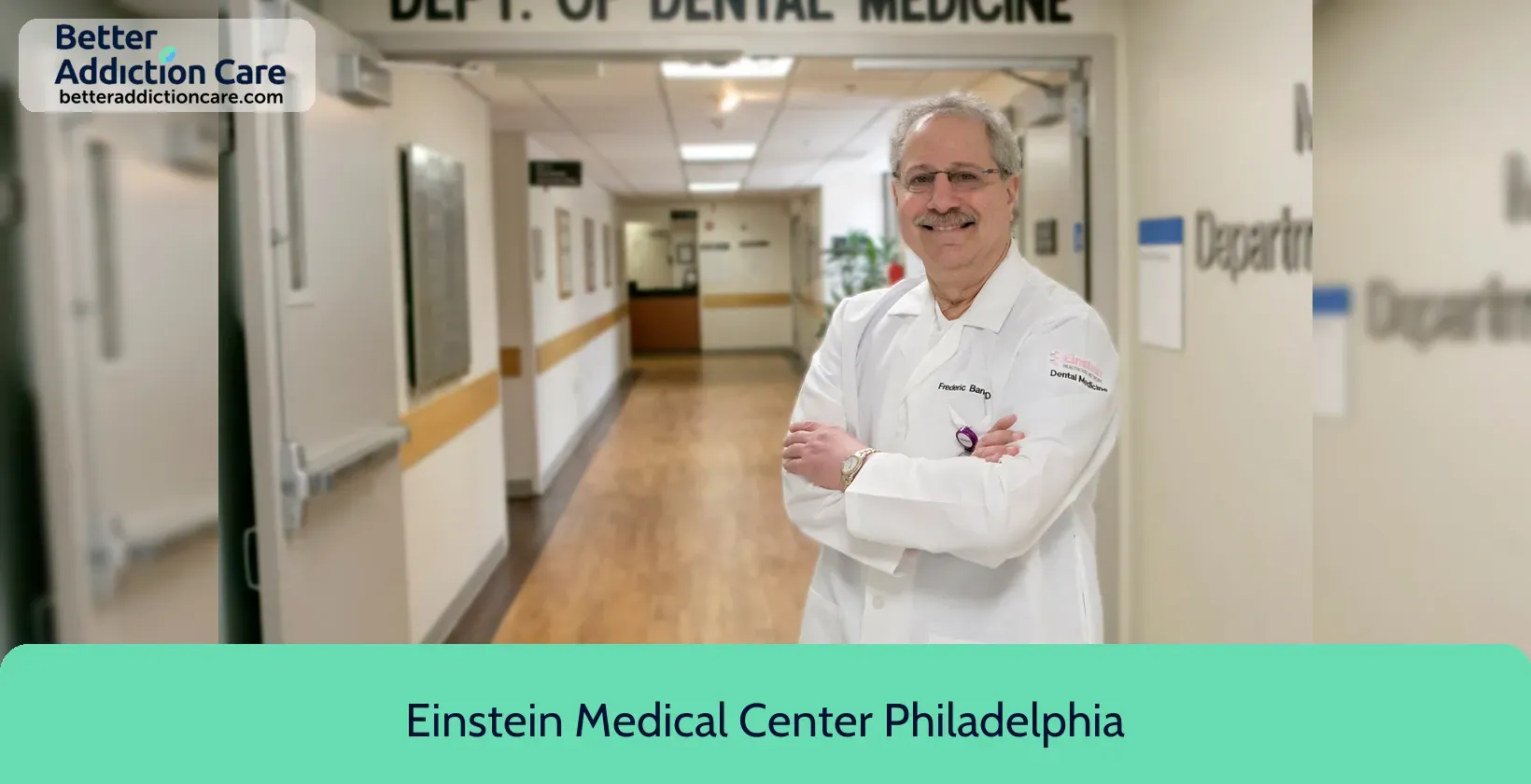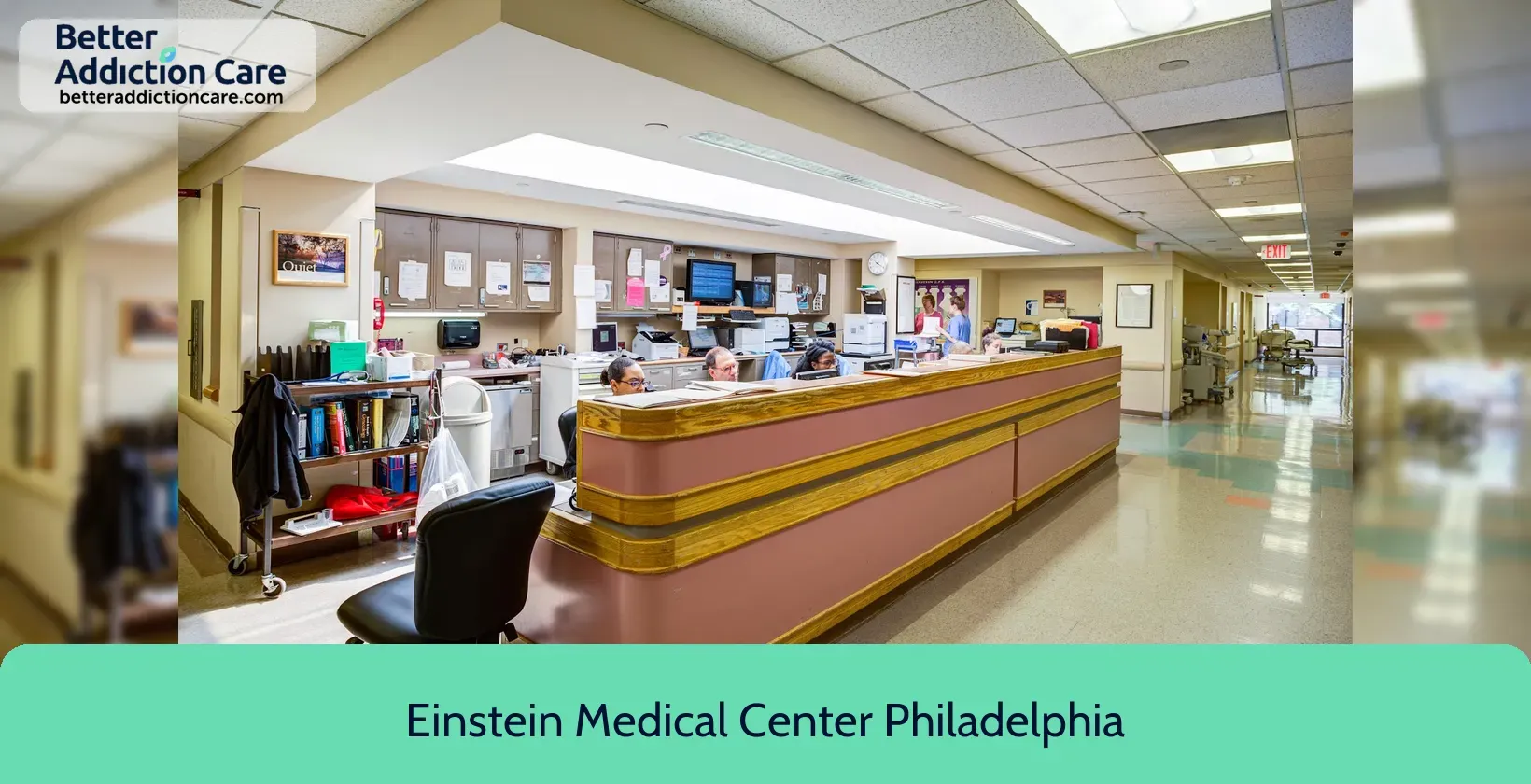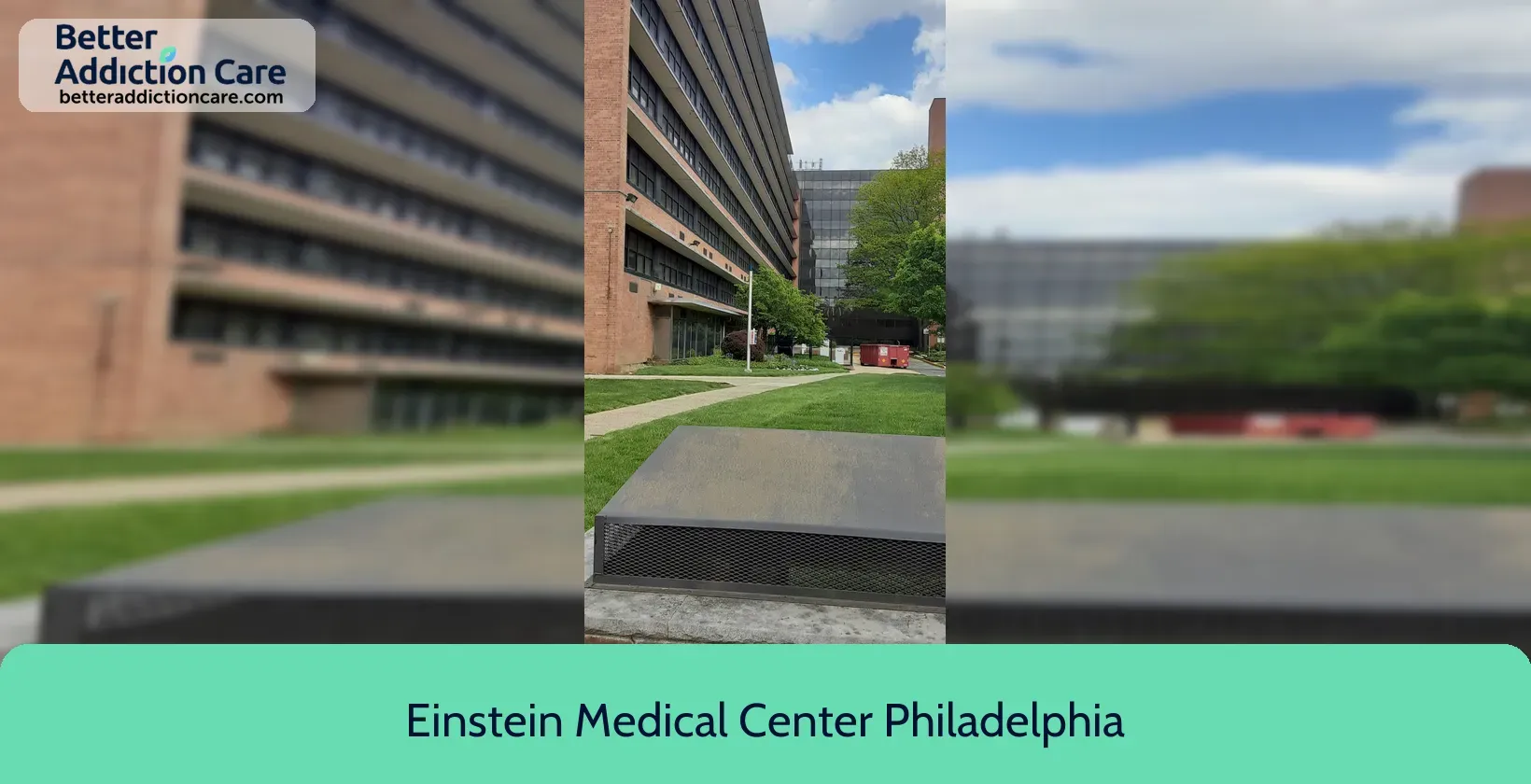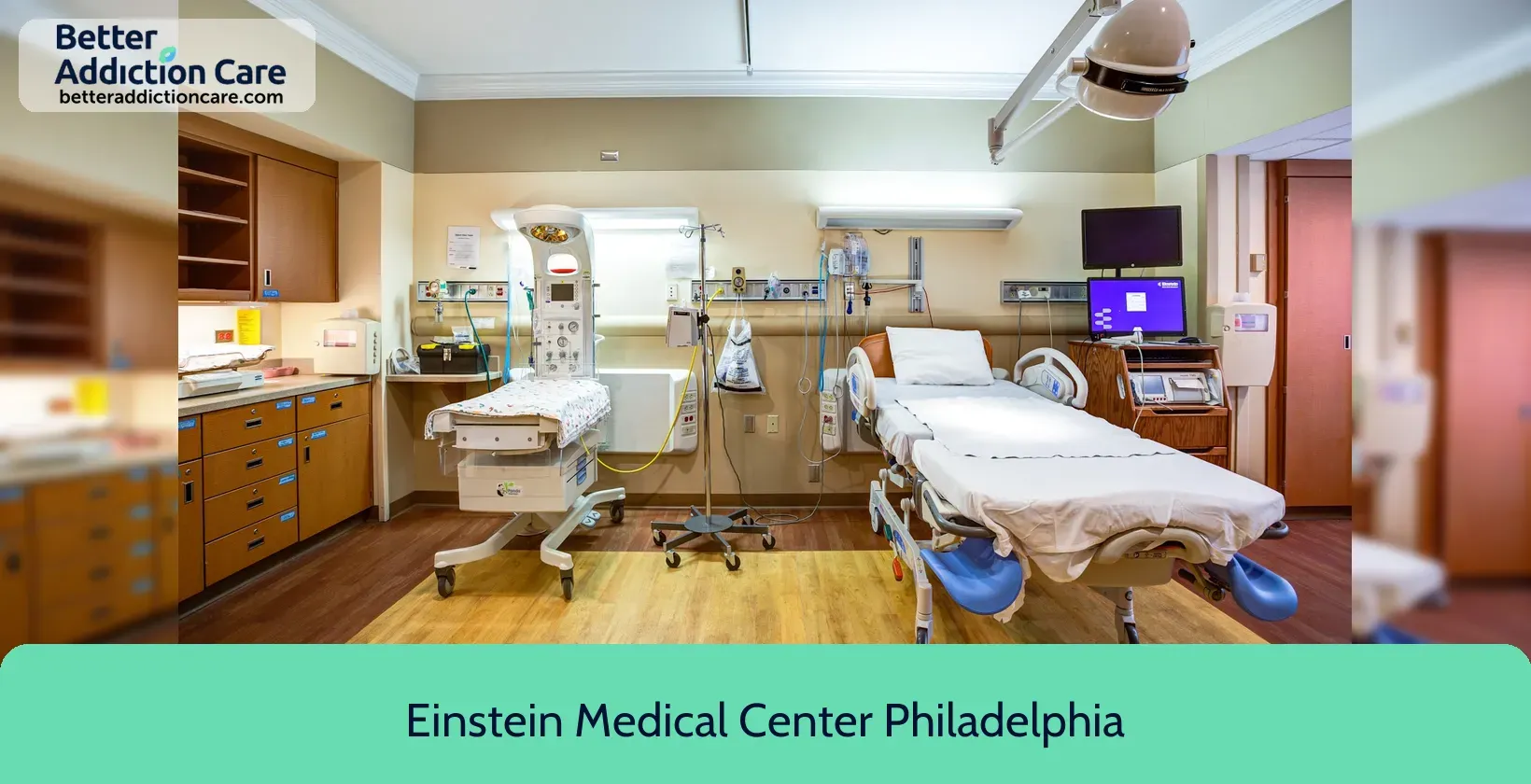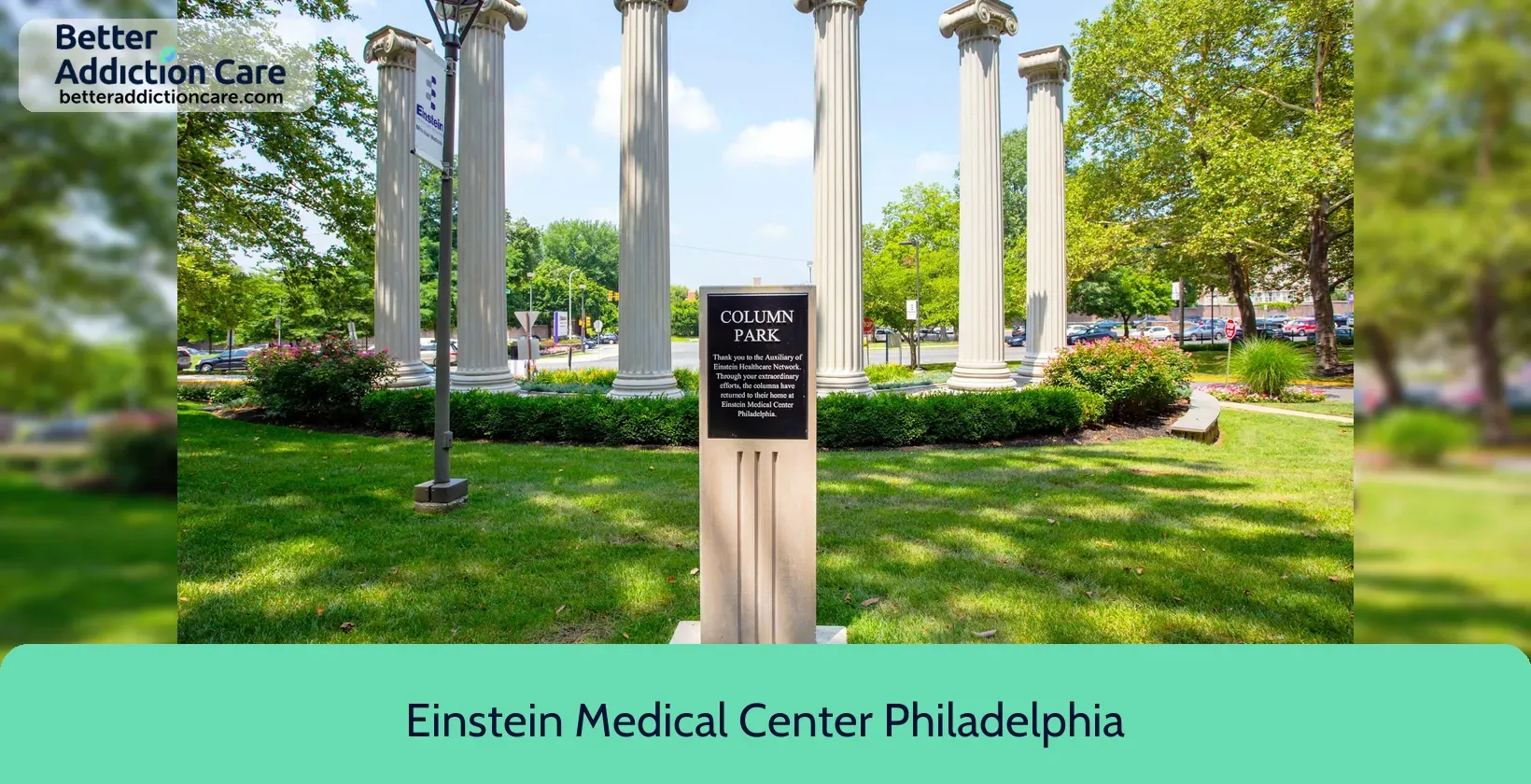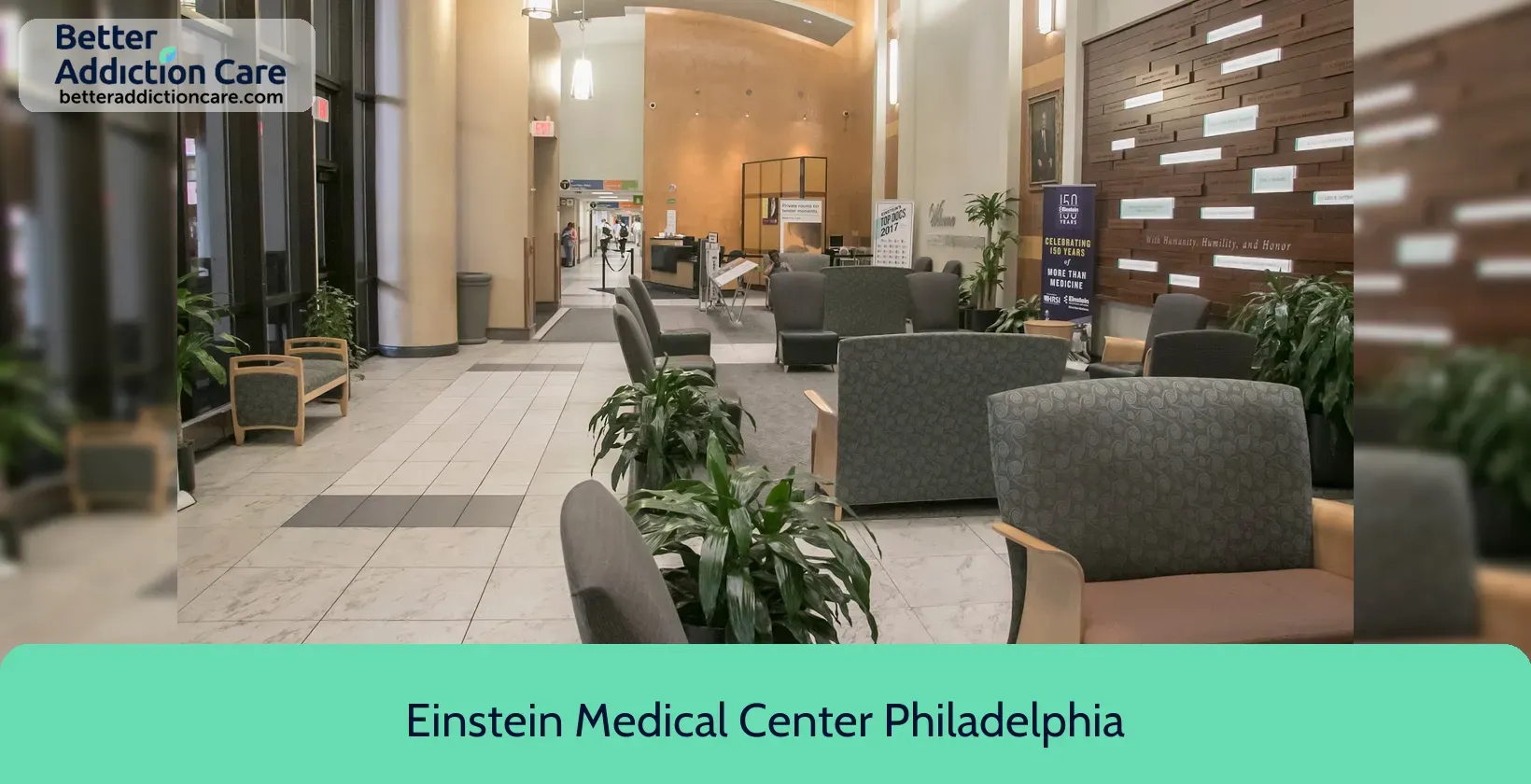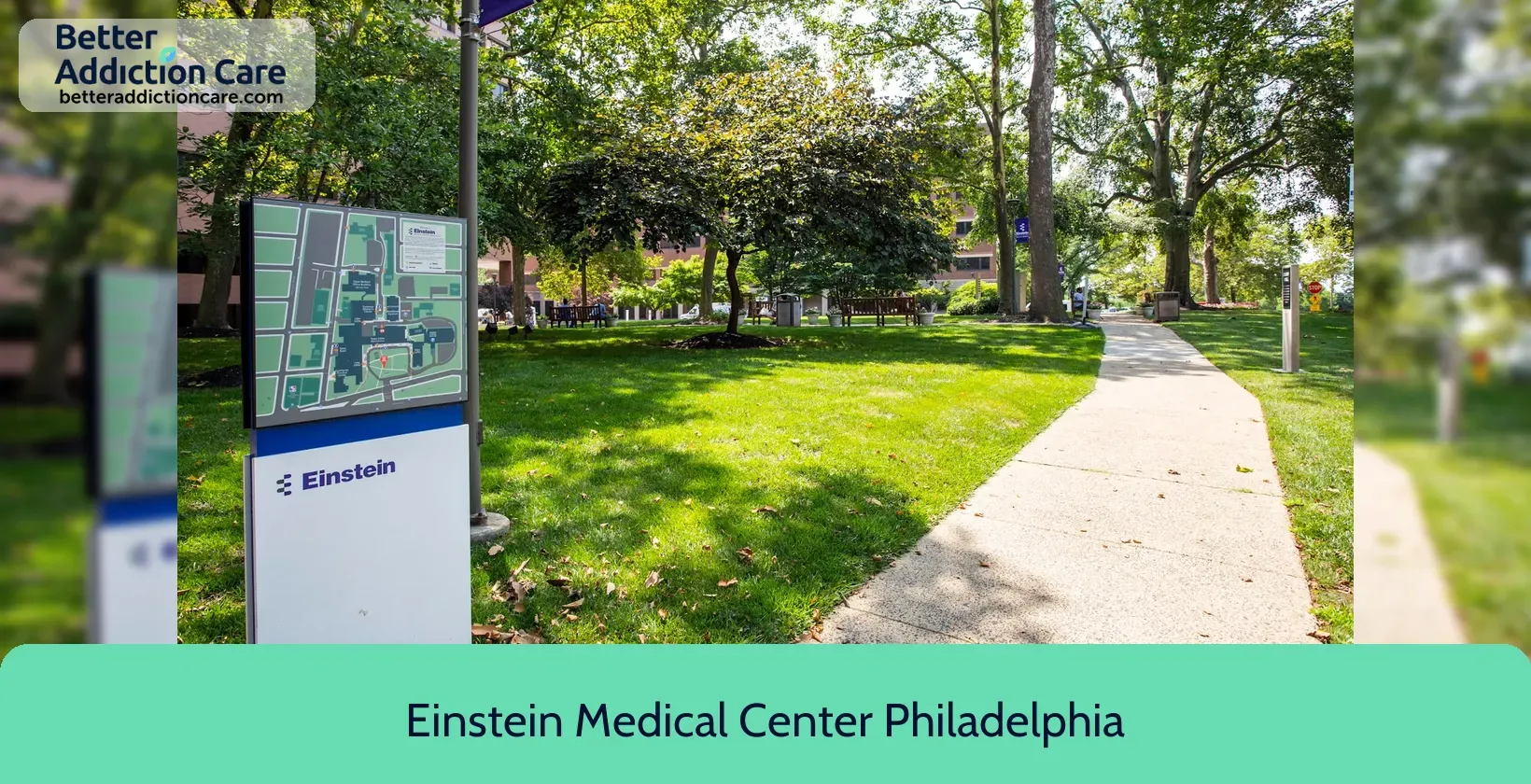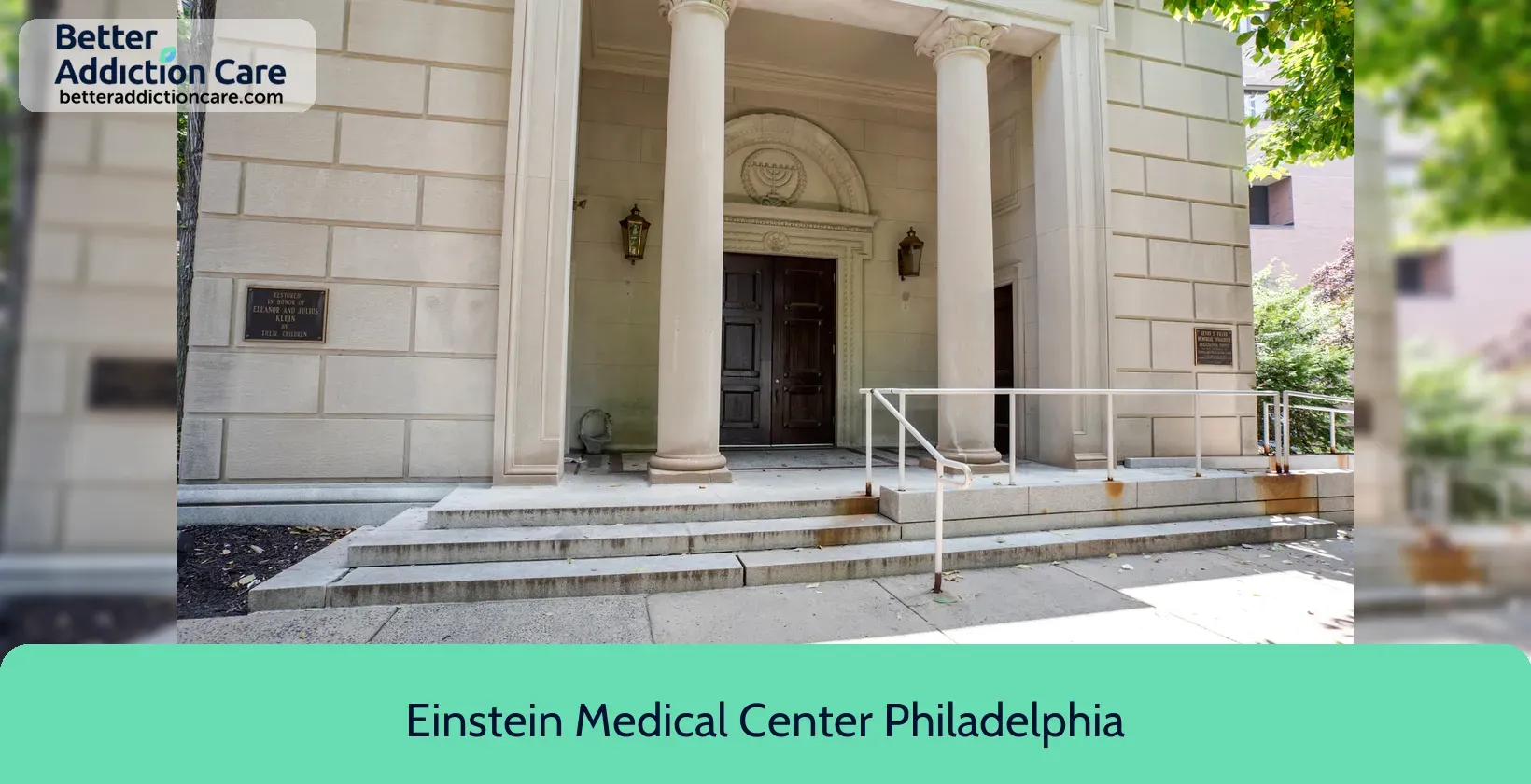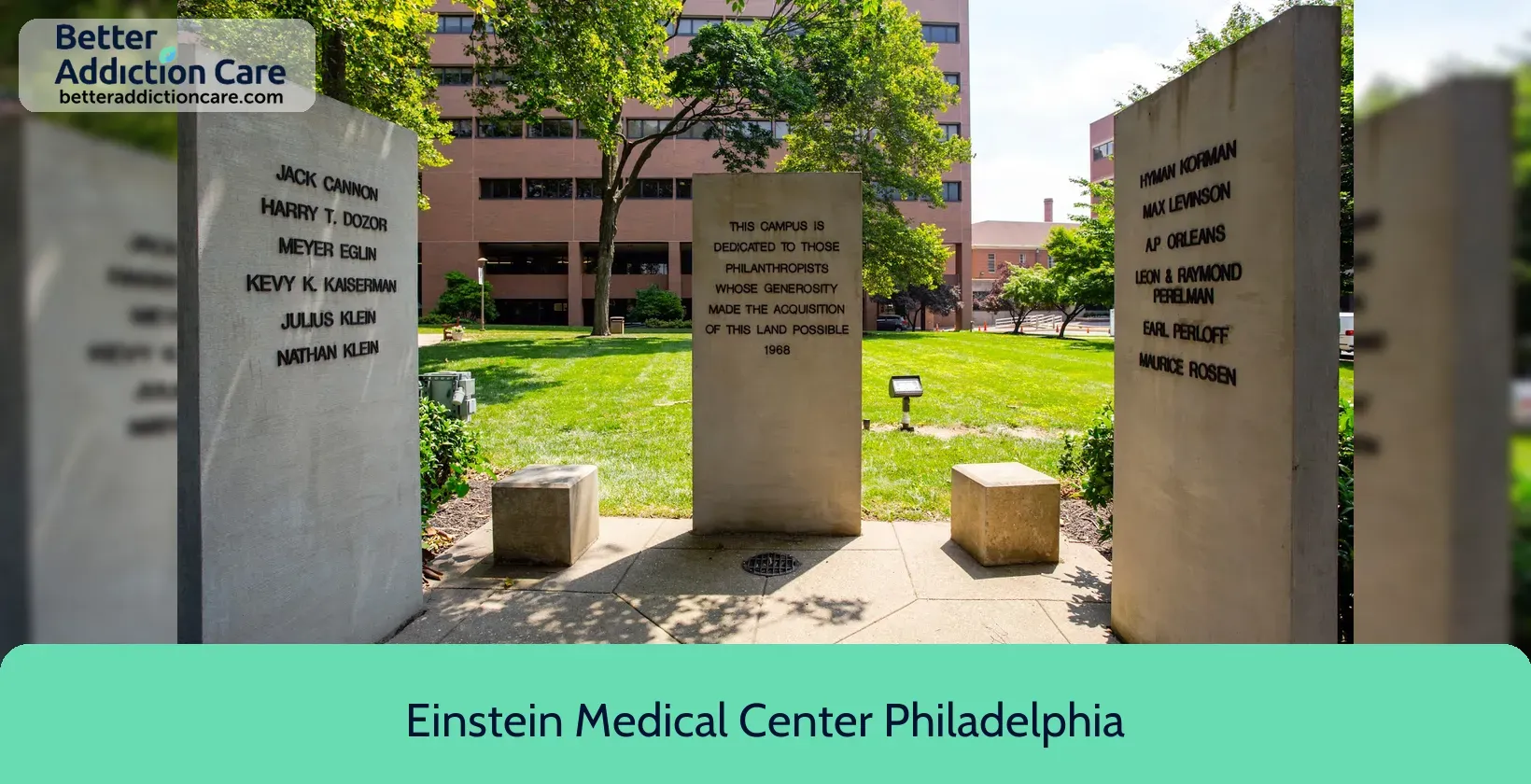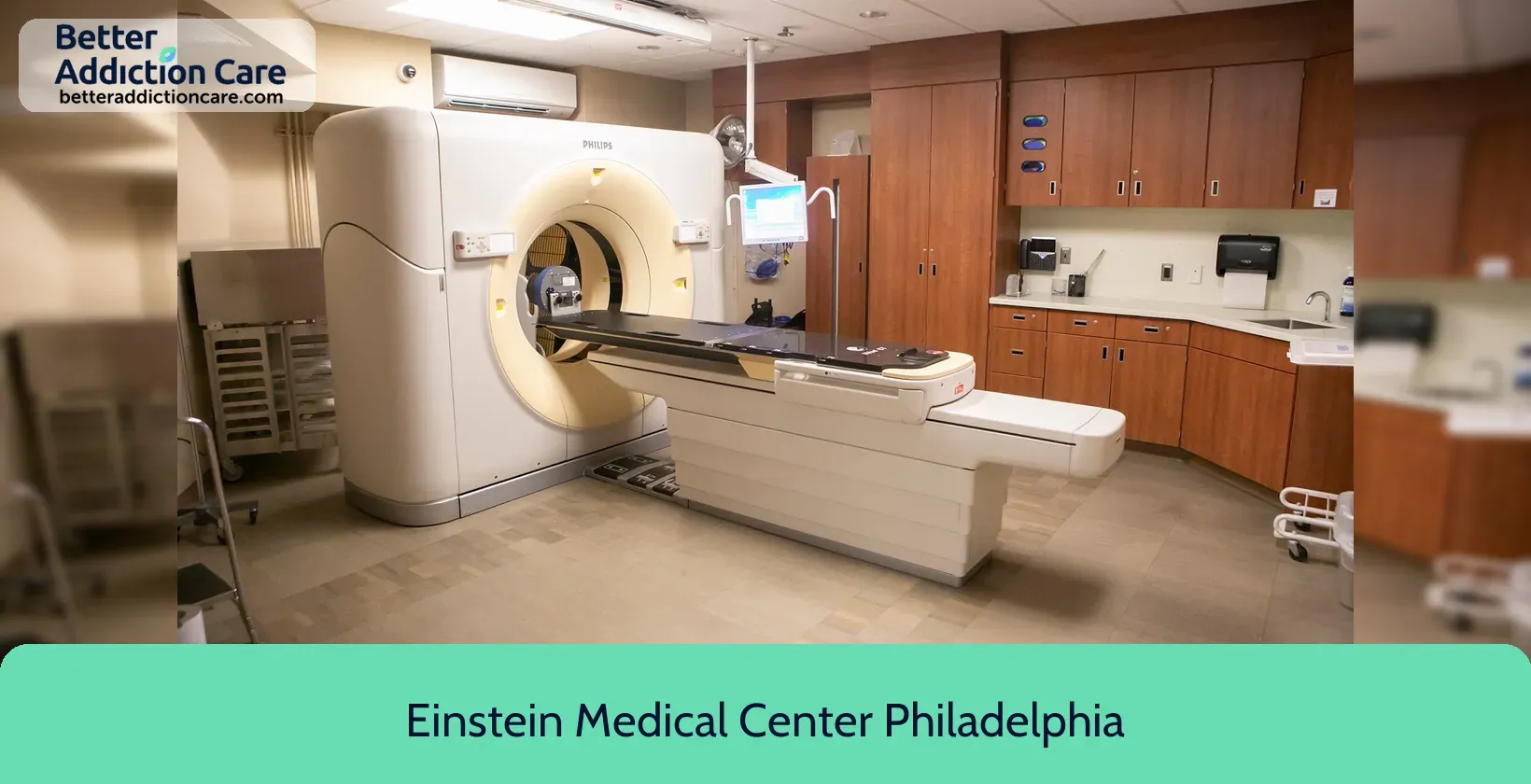Einstein Medical Center Philadelphia
Overview
Einstein Medical Center Philadelphia is a mental health treatment center for people seeking treatment near Philadelphia County. As part of their treatment modalities for recovery, Einstein Medical Center Philadelphia provides group counseling, activity therapy, and electroconvulsive therapy during treatment. Einstein Medical Center Philadelphia is located in Philadelphia, Pennsylvania, accepting cash or self-payment for treatment.
Einstein Medical Center Philadelphia at a Glance
Payment Options
- Cash or self-payment
- Medicaid
- Medicare
- Private health insurance
Assessments
- Screening for tobacco use
- Comprehensive mental health assessment
Age Groups
- Seniors or older adults
- Young adults
- Adults
- Seniors
Ancillary Services
- Case management service
- Integrated primary care services
- Psychosocial rehabilitation services
- Suicide prevention services
Highlights About Einstein Medical Center Philadelphia
6.62/10
With an overall rating of 6.62/10, this facility has following balanced range of services. Alcohol Rehabilitation: 8.00/10, Drug Rehab and Detox: 6.00/10, Insurance and Payments: 6.00/10, Treatment Options: 6.49/10.-
Alcohol Rehabilitation 8.00
-
Treatment Options 6.49
-
Drug Rehab and Detox 6.00
-
Insurance and Payments 6.00
Treatment At Einstein Medical Center Philadelphia
Treatment Conditions
- Mental health treatment
Care Levels
- Hospital inpatient/24-hour hospital inpatient
- Outpatient
Treatment Modalities
- Group counseling
- Activity therapy
- Electroconvulsive therapy
- Telemedicine/telehealth therapy
- Smoking/vaping/tobacco cessation counseling
Ancillary Services
Languages
- Sign language services for the deaf and hard of hearing
- Spanish
Additional Services
- Pharmacotherapies administered during treatment
- Mentoring/peer support
- HIV testing
Special Programs
- Clients who have experienced trauma
- Persons 18 and older with serious mental illness (SMI)
- Persons with post-traumatic stress disorder (PTSD)
Get Help Now
Common Questions About Einstein Medical Center Philadelphia
Contact Information
Other Facilities in Philadelphia

7.04

7.20

6.89

7.14

6.68

6.65

7.33

6.68
DISCLAIMER: The facility name, logo and brand are the property and registered trademarks of Wedge Medical Center 3604 Germantown Avenue, and are being used for identification and informational purposes only. Use of these names, logos and brands shall not imply endorsement. BetterAddictionCare.com is not affiliated with or sponsored by Wedge Medical Center 3604 Germantown Avenue.
